12 brilliant climate books by women
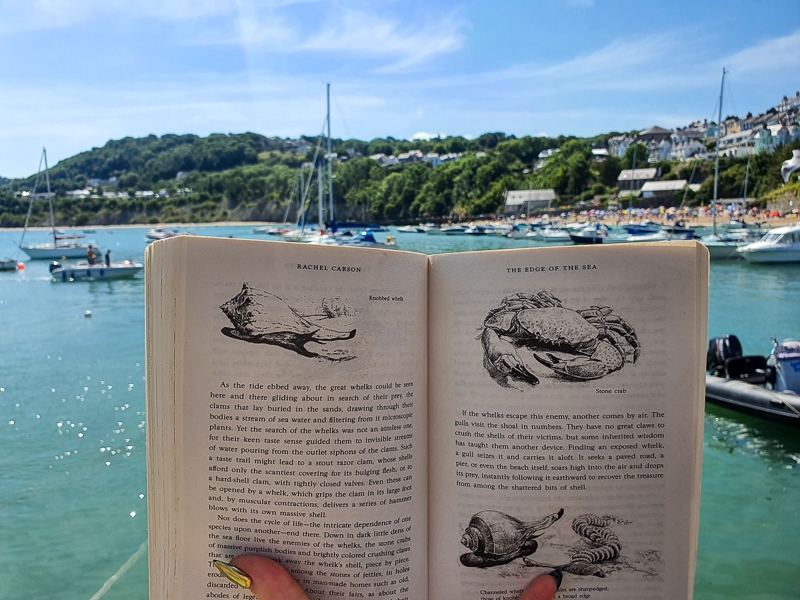
I've written before about how the shelves of bookshops and the titles on 'best of' lists are so often occupied by men. This is as true in climate as it is in other topics.
In If Women Rose Rooted, Sharon Blackie writes "our patriarchal, warmongering, growth-and-domination-based culture has caused runaway climate change, the mass extinction of species, and the ongoing destruction of wild and natural landscapes...Women might have been complicit...but the men were the ones with their fingers on the buttons...If we rise up rooted, like trees...well, then, women might indeed save not only ourselves, but the world."
And with that in mind, here are some fantastic climate books by women. Links are to my full review. In no particular order...
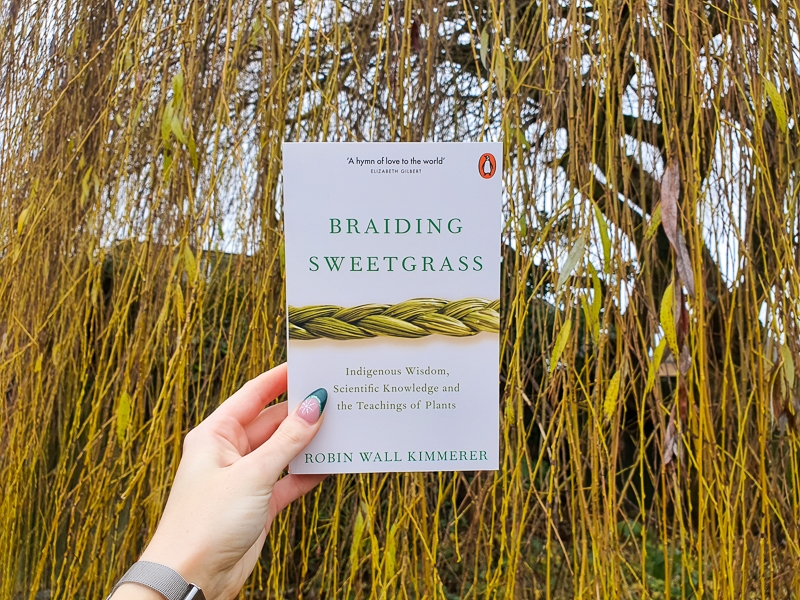
1. Braiding Sweetgrass, Robin Wall Kimmerer
Braiding Sweetgrass is a wonderful exploration of indigenous knowledge and ways of thinking about the natural world. It brought tears to my eyes and warmth to my heart throughout. Much of the book opened my eyes to knowledge and spirituality that I didn’t have before, but just as special were the sections that felt like coming home.
Read this book and let love, gratitude and wonder for the natural world wash over you.
Kimmerer also wrote Gathering Moss, which is a beautiful book.
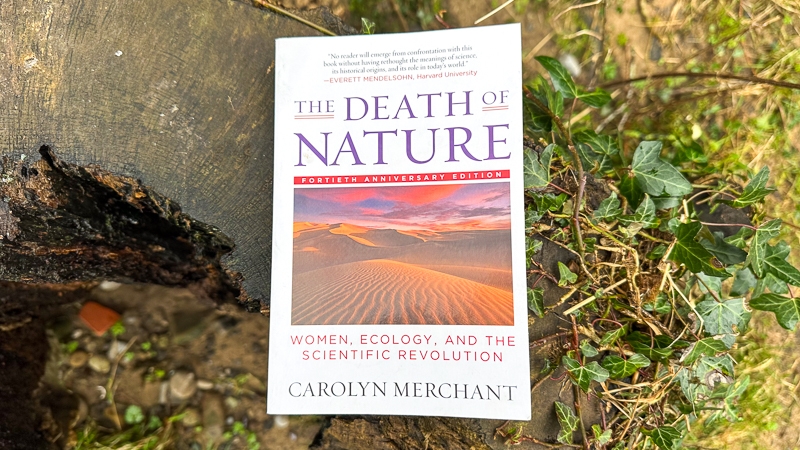
2. The Death of Nature, Carolyn Merchant
This book on women, ecology, and the scientific revolution is a searing account of how a mechanistic world view "laid open a new and brutal exploitation of the environment, animals, and a living, vital nature." A fascinating cultural exploration, Merchant charts the change from viewing the Earth as a living mother, to viewing her as a dead, inanimate object.
Representations of nature matter because they shape the way we think and behave towards the world around us. No understanding of representations is complete without consideration of Merchant's views.
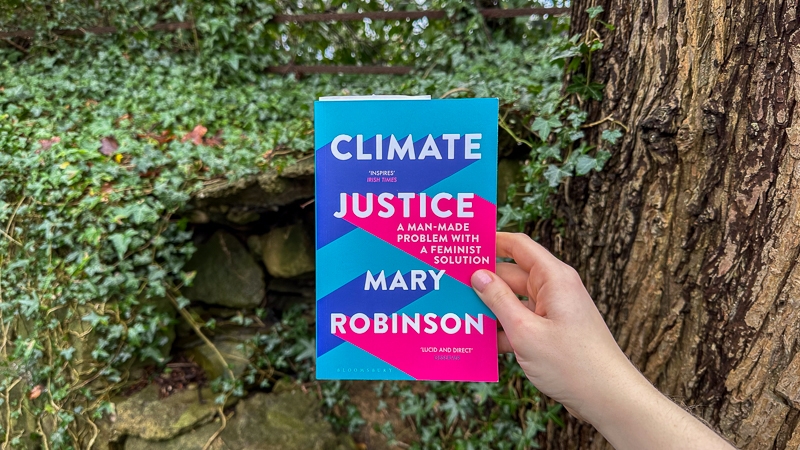
3. Climate Justice, Mary Robinson
Climate Justice has the strapline a man-made problem with a feminist solution. Former President of Ireland, United Nations Secretary-General's Special Envoy on Climate Change, and United Nations High Commissioner for Human Rights and now President of the Mary Robinson Foundation - Climate Justice, Robinson has a unique perspective on the political challenges of the climate crisis.
In this book, she describes what she calls climate justice: putting people at the heart of the solution. She writes that "the fight against climate change is fundamentally about human rights and securing justice for those suffering from its impact."
Nine of the chapters profile the work of individuals working for climate justice, and Robinson's discussion of their work traverses key climate justice themes, like indigenous rights, representation, land access, and adaptation.
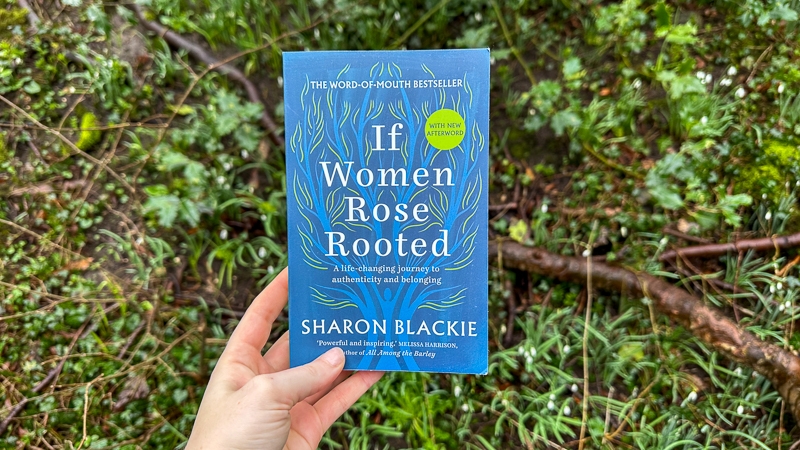
4. If Women Rose Rooted, Sharon Blackie
If Women Rose Rooted is a spiritual exploration of women's connection to the natural world and our power to rise, rooted, to save the world.
Blackie charts what she calls an Eco Heroine's Journey, a reimagining of the traditional literary device of the Hero's Journey. The book will speak to different readers in different ways. For me, what stood out was Blackie's articulation of the Wasteland: a spiritual, moral, or physical world where connection to land and to nature is lost, where values are corrupted. Much of the book charts ways out of the Wasteland, and follows Blackie's own turbulent journey.
This book is also a great way to connect with Celtic stories, as Blackie tells them throughout.
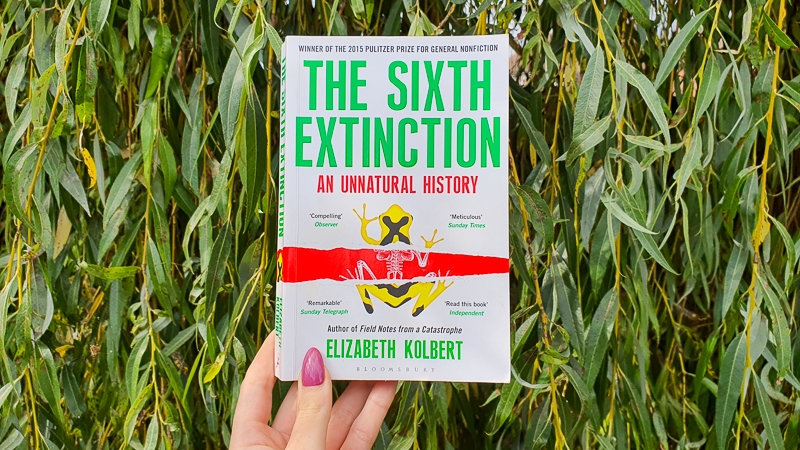
5. The Sixth Extinction, Elizabeth Kolbert
An understanding of the climate crisis that lacks an understanding of the biodiversity crisis is really no understanding at all, so books like The Sixth Extinction are required reading.
Kolbert is compelling as she tells us the history of extinctions on Earth. Many people aren't aware that five have come before, and that we're in the sixth great extinction. A fascinating history lesson and a devastating portrait of human-caused extinction.
Kolbert also wrote Field Notes from a Catastrophe about her experience as a journalist reporting on the climate crisis.
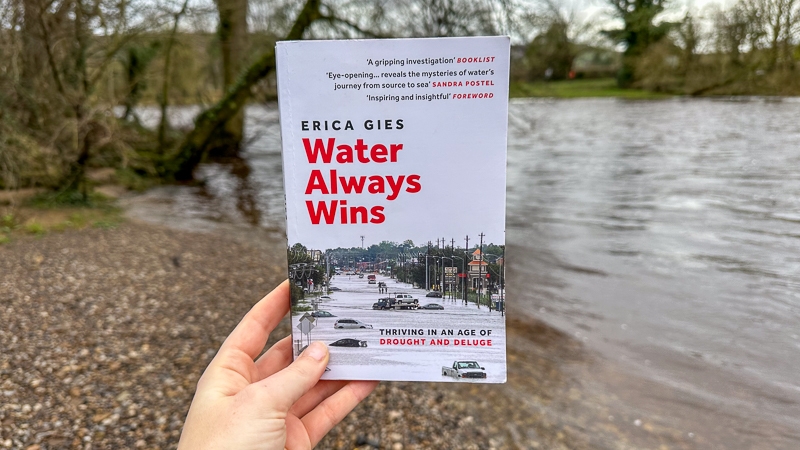
6. Water Always Wins, Erica Gies
When we think of adaptation to rising seas or flooding rivers, our mind usually goes to the likes of sea walls and levees: big, slow, expensive projects, "grey infrastructure", after the concrete used to build them.
But do these projects offer us solutions to the increasing threat of storms and flooding? In Water Always Wins, Gies explores the Slow Water movement as an alternative to grey infrastructure. With case studies from around the world, she opens the reader's eyes to a new world of responses to water: green infrastructure, Slow Water, managed retreat, and more. Even better, she considers our broken relationship with water, and whether we can find a future where we live together harmoniously.
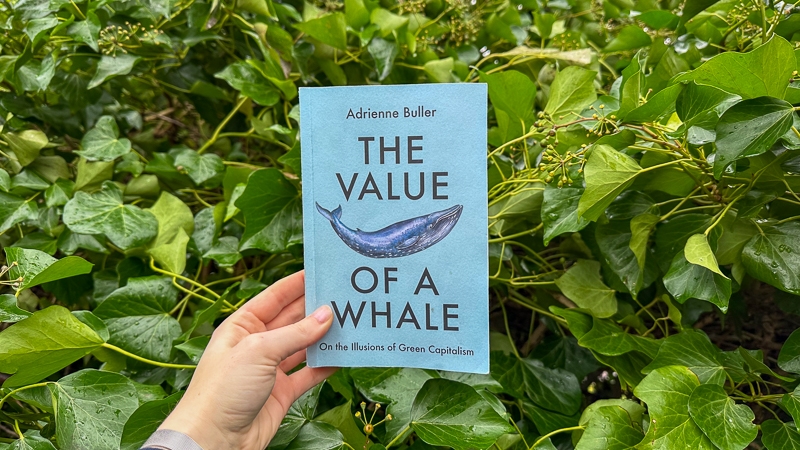
7. The Value of a Whale, Adrienne Buller
The Value of a Whale is a blistering reproval of what Buller calls green capitalism. Framing our response to the climate crisis within current social, economic, and political structures feels natural to us, but that doesn't mean it's right - or that it will work.
Our response is characterised by marketisation, commodification, and objectification. The way to save whales is to put a price on their head, says our society. The way to remove emissions is to monetise, unitise, and marketise. Can this achieve positive change? If it can, what are the dangers? Consider, says Buller, neo-colonialism, enclosure of the atmospheric commons, global inequality, the role of the state, and whether separation and marketisation lessens our ability to achieve the radical changes in distribution of power, wealth, and consumption needed for long-term global solutions to the climate and ecological crises.
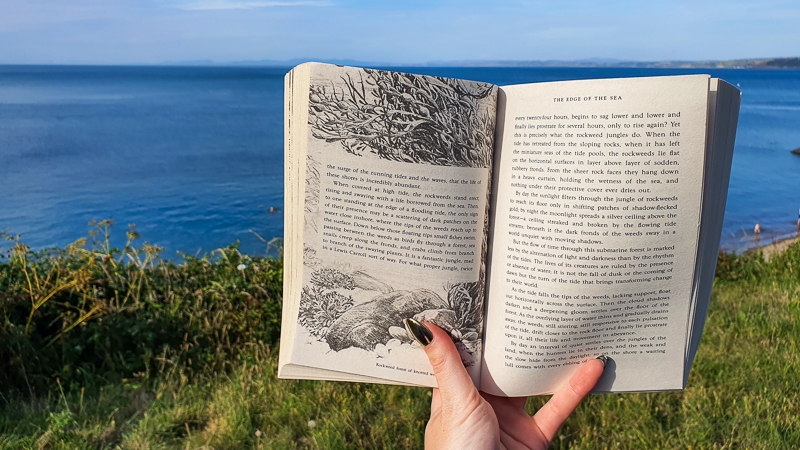
8. Silent Spring, Rachel Carson
Caron's Silent Spring is a classic and often cited as the book that kick-started the environmental movement. A marine biologist and author of beautiful books The Edge of the Sea, Under the Sea Wind, and The Sea Around Us, Carson documents the chilling picture of a 1950s America exposed to an unprecedented killer: DDT.
Silent Spring isn't a museum exhibit. Its themes of the influence of big industry, disregard for the natural world, suppression of scientific findings, and devastating biodiversity loss continue today. We need this book now just as much as we did in the '50s.
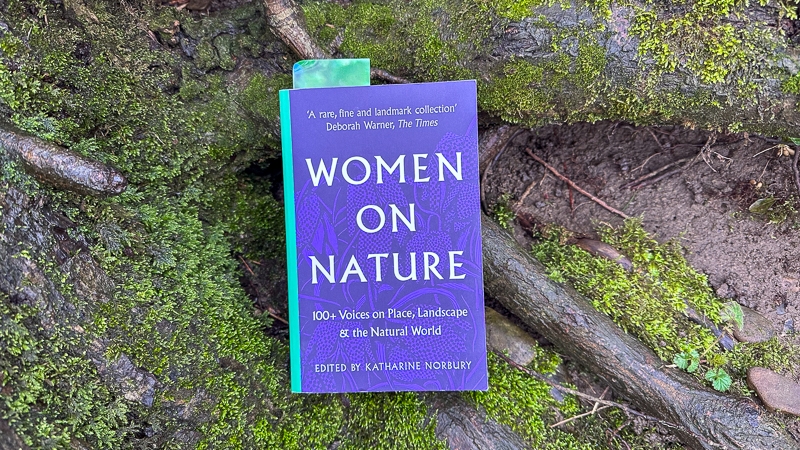
9. Women on Nature, edited by Katharine Norbury
This important collection brings together the diverse voices of more than 100 women talking about place, landscape, and the natural world. Women on Nature is a cultural melting pot: poetry, short stories, excerpts from novels, all come together in this journey through women's connection to the natural world.
The challenge with this book is not buying every piece mentioned in it!
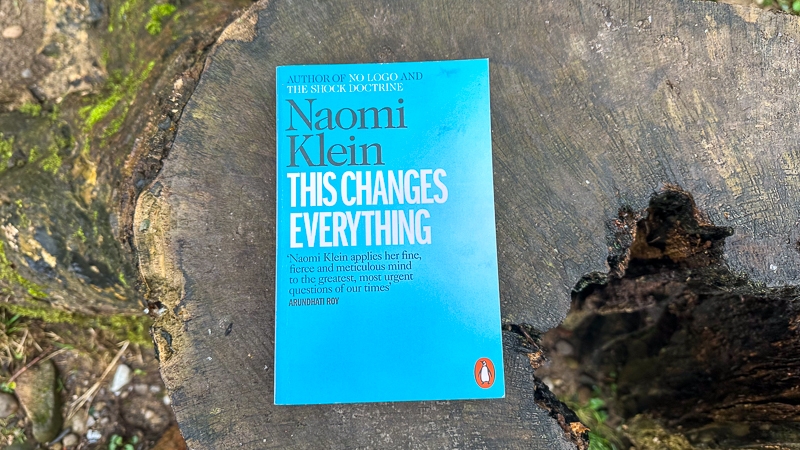
10. This Changes Everything, Naomi Klein
"Politicians aren't the only ones with the power to declare a crisis. Mass movements of regular people can declare one too."
In This Changes Everything, Klein envisions a future in which we go beyond enduring, mitigating, or adapting to climate change, and use the crisis to leap somewhere better than where we are now.
11. No One is Too Small to Make a Difference, Greta Thunburg
This tiny book packs a punch. A rousing collection of Thunburg's speeches that have made international history and inspired a generation of school children to take action on the climate crisis.
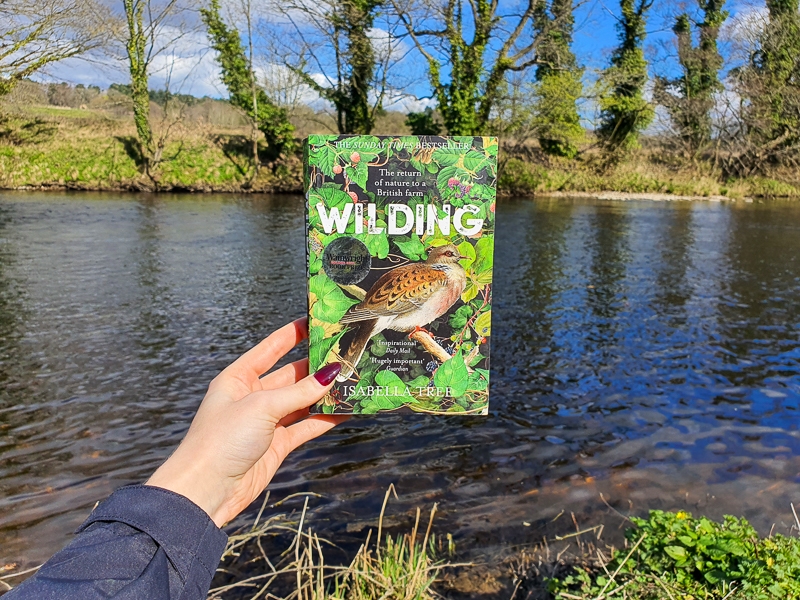
12. Wilding, Isabella Tree
In responding to the climate crisis, we have to try new things. Generally accepted as the book on rewilding, Wilding is the antidote to eco anxiety. Tough it through the history of the destruction of farmland in England before relaxing into the beautiful success story of Tree's Knepp Estate. A glimpse of hope for the future.
On my TBR
Here are some books by women that I'm excited to read:
How Women Can Save the Planet, Anne Karpf
Losing Eden, Lucy Jones
Life Changing: How Humans are Altering Life on Earth, Helen Pilcher
Unearthed: On Race and Roots, and How the Soil Taught Me I Belong, Claire Ratinon
Forget Me Not, Sophie Pavelle
The Intersectional Environmentalist, Leah Thomas
How to be Animal, Melanie Challenger
Consumed, Aja Barber
It's Not That Radical, Michaela Loach
Why Women Will Save the Planet, Friends of the Earth
All We Can Save, edited by Ayana Elizabeth Johnson and Katharine K. Wilkinson
A Bigger Picture: My Fight to Bring a New Africa Voice to the Climate Crisis, Vanessa Nakate
Fresh Banana Leaves: Healing Indigenous Landscapes Through Indigenous Science, Jessica Hernandez
The Nature Fix, Florence Williams
Form and Flow: The Spatial Politics of Urban Resilience and Climate Justice
Stay tuned for full reviews of the books on this list and my growing TBR.
There are so many brilliant books by women that don't feature above. I'd love to hear your recommendations. In particular, the core list above is mostly white women. Our reading should be diverse, and I'm increasing the diversity of my TBR.
Share with your friends
Subscribe to learn more
Join me in exploring our natural world and cultural heritage as we learn how to protect and restore it. Get notified on my latest posts and a monthly newsletter on wider conversation topics for us to chat about.
Recent Posts
If you enjoyed this one, then you might like these too.